Nutty Professor, The (1963)
“Professor Kelp’s just the kind of guy who might fool you.”
|
Synopsis: |
|
Genres, Themes, Actors, and Directors:
Response to Peary’s Review: He refers to the film in general as “wildly inventive”, calling out Lewis’s “innovative direction and… witty screenplay” (co-written with Bill Richmond), which is full of countless hilarious moments — including inventive sight gags (such as the surreal consequence of Kelp trying to lift weights in a gym): … remarkably effective use of sound effects for humor (as when Kelp enters his class with a raging hangover, and over-reacts to every noise made by his students): … and plenty of darkly humorous sequences with Buddy Love (which indicate that this film could in some ways be more accurately described as a “black comedy” than a straight “comedy”). Indeed, Peary writes that “If The Nutty Professor is Lewis’s best film, and I believe it is, it is not so much because it is his funniest as because it is his most daring… in the sense that Lewis, who begs for love in all his other films, knew he was making a picture to which his greatest fans, children, would probably react negatively.” Love is a truly provocative character — someone so outrageously, obnoxiously arrogant (and cruel!) that one hesitates to laugh at him. (An exception is during the one Love scene played strictly for laughs: the truly chuckle-worthy sequence in which Love “gets into the… good graces of the dean [an excellent Del Moore] by complimenting him on his suit and flattering his acting ability, coaxing him into reciting Hamlet’s soliloquy while standing on top of a table and wearing the weird attire that Buddy hands him every time he tries to begin.”) The rest of the time, however, one simply squirms uncomfortably at the notion that a half-rate, oily slickster like Love could genuinely charm an entire population of college students, and Stella Stevens in particular. With that said, Stevens’ attraction to Love is decidedly complex: while Stevens (Peary argues this is her “best role in a comedy”) spends a bit too much time simply staring at Love or Kelp with either puzzled sympathy or annoyance, it’s clear that she’s genuinely trying to tease out the nature of her attraction to both men. She’s turned on by Kelp’s intelligence, but simultaneously drawn in — as if by hypnotic spell — to the web of Love’s allure, despite clearly recognizing the folly of her conflicted desire. Love himself has traditionally (and most facilely) been viewed as representing “Lewis’s ex-partner, the cocky, romantic-singing, and boozing Dean Martin” — but Peary (and others) note that Buddy is perhaps more accurately the “alter-ego of Jerry Lewis, the Lewis we see each year on the telethon: that conceited, sanctimonious, singing, angry older fellow who tries unsuccessfully at times to keep the funny-voiced ‘Kid’ bottled up inside him”. Check out Lewis’s 1969 interview with Dick Cavett (available on YouTube) for a classic representation of just this dynamic. Redeeming Qualities and Moments:
Must See? Categories
(Listed in 1001 Movies You Must See Before You Die) Links: |
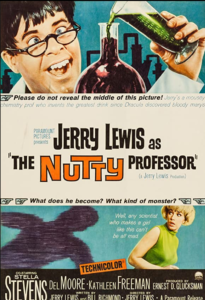

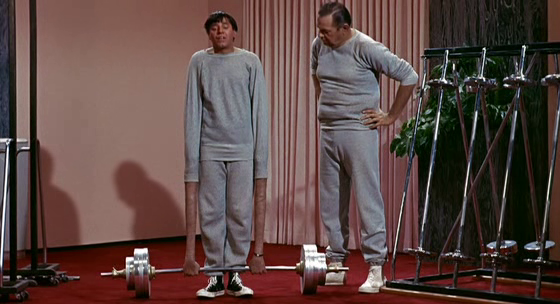
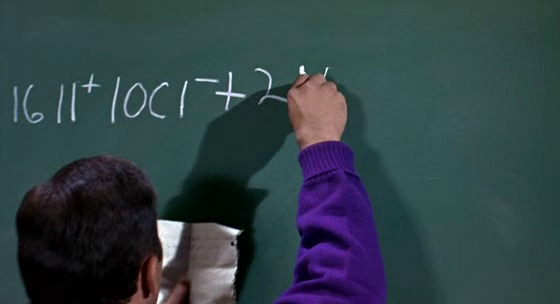



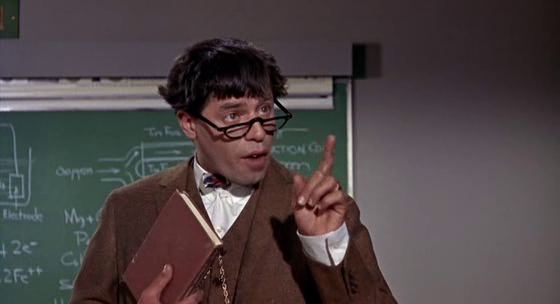
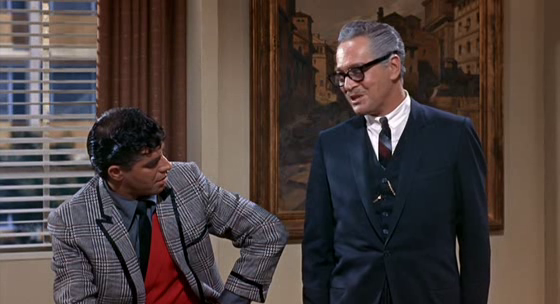

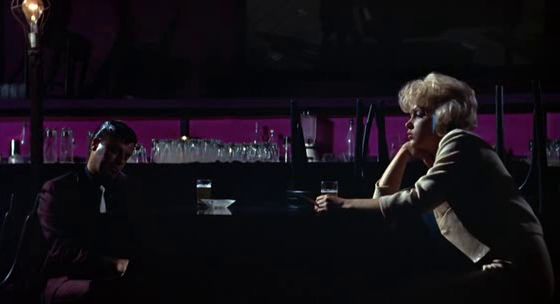
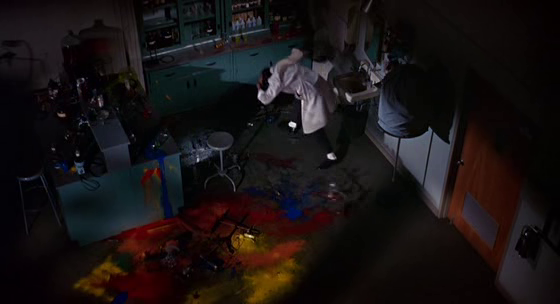
One thought on “Nutty Professor, The (1963)”
A once-must, as Lewis’ most successful film and for its cult status.
Until now, it had been many years indeed since I’d seen this film. As may be clear from reviews of mine at this site for the films Lewis made with Dean Martin, I’m not particularly a fan. (~although, strangely, I admire some of Lewis’ later work as an actor in films by other directors: ‘The King of Comedy’ and ‘Arizona Dream’.)
Seeing ‘TNP’ again…though it certainly is genuine fun in many ways compared to so much else that Lewis gave us, it’s still awkward and unsatisfying as a solid piece. The sequences that work do so in a refreshing manner (and there are enough of them to keep the film afloat) – however, through this viewing, I did also feel antsy at times as I wished certain sections were more disciplined.
For example, one crucial point in particular: we see a few subsequent scenes of Buddy Love at the Purple Pit which are too short and consist of little more than Buddy’s voice being heard in mid-speech (or mid-song) changing back to Julius’ voice. In other words, Lewis didn’t seem to know how to fully exploit each scene in the film so that the film as a whole would gel.
Considering the film works well so often, it’s just a shame that it still feels piecemeal.
Stevens (who is generally a lot of fun here) seems a bit saddled sometimes with an inconsistent character. We’re made to believe that she is torn/conflicted in her feelings for Buddy Love – but the actress invests so much conviction in the stronger part of her character that the wavering part of her ‘Stella’ doesn’t seem as convincing.
As pointed out, the scene with Lewis and Moore (as the dean) is hilarious. As well, as Lewis’ parents, Howard Morris and Elvia Allman quickly steal the picture in (alas) their very limited screen-time: two short scenes, through which they reverse roles of dominance and submission. (Wonderful character actress Kathleen Freeman is also, sadly, under-used.)
Overall, it’s a fun movie to see once. But even though Lewis manages a number of memorable moments, Peary’s ‘Best Actor’ nom for Lewis seems a bit much.